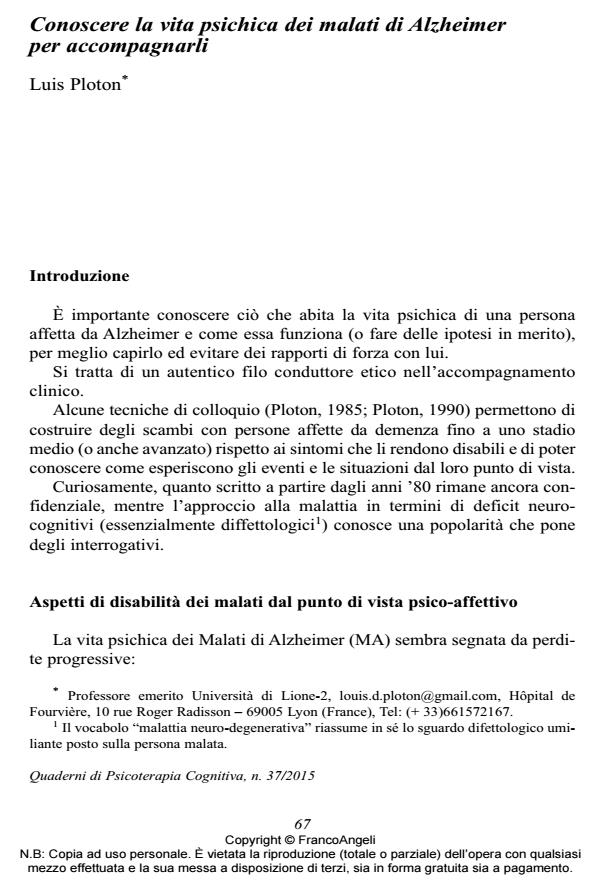Knowing psychic life of patients with Alzheimer’s disease to guide them
Journal title QUADERNI DI PSICOTERAPIA COGNITIVA
Author/s Luis Ploton
Publishing Year 2015 Issue 2015/37
Language Italian Pages 10 P. 67-76 File size 87 KB
DOI 10.3280/QPC2015-037004
DOI is like a bar code for intellectual property: to have more infomation
click here
Below, you can see the article first page
If you want to buy this article in PDF format, you can do it, following the instructions to buy download credits

FrancoAngeli is member of Publishers International Linking Association, Inc (PILA), a not-for-profit association which run the CrossRef service enabling links to and from online scholarly content.
Since the Eighties, some interview techniques have allowed us to talk to the patient about his illness and to describe it from his/her point of view. This is an essential feature in order to promote the balance of power with him/her, from an ethic perspective of the lesser evil search. The psychic life of Alzheimer’s patients is marked by the loss of the ability to consciously and voluntarily mobilize abilities acquired and developed through learning. In particular, they lose the ability to think (and remember) with words, and experience a feeling of psychic emptiness. Their thinking is therefore made up of feelings and impressions. However, they still show empathic skills, together with an affective functioning adapted to the preservation of implicit memory (affective memory?). But the loss of cognitive understanding associated with the loss of verbal expression (catharsis) and with the reduction of the associative abilities (mentalizing) leads to difficulties in psychically integrating their emotions. What survives is only the behavioral expression to display two phenomena permanently retrieved, and which cause the behavioral disorders: - the anguish of abandonment; - a latent feeling of devaluation.
Keywords: Abandonment, anxiety, Alzheimer’s disease, behavior, narcissism.
Luis Ploton, Conoscere la vita psichica dei malati di Alzheimer per accompagnarli in "QUADERNI DI PSICOTERAPIA COGNITIVA" 37/2015, pp 67-76, DOI: 10.3280/QPC2015-037004